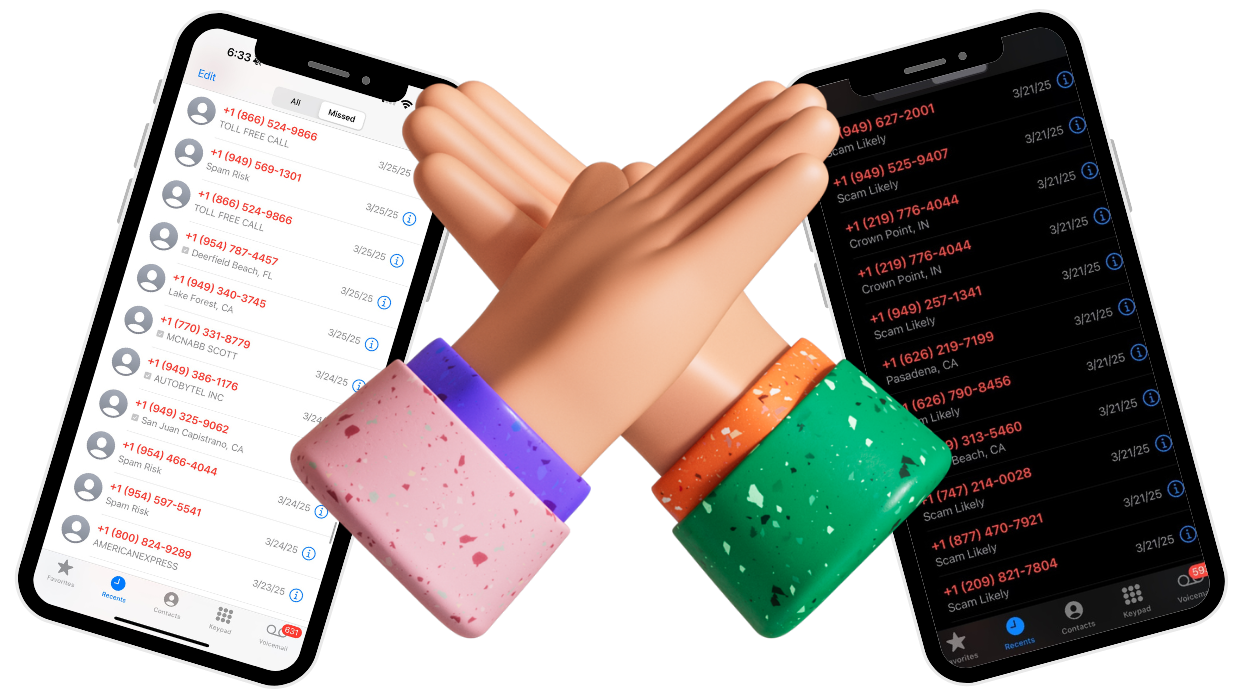Android users, you've got OPTIONS. Let's make them profitable options.
Android gives you more control over spam calls than iPhone. More customization. More blocking features.
But here's what Google WON'T tell you: The best "blocking" strategy is one that pays YOU.
Let me show you how to stop robocalls on Android AND turn frustration into profit...
Method 1: Google's Built-in Call Screening (The Free Way)
Enable Call Screen (Pixel phones):
- 1. Open Phone app → Settings → Spam and Call Screen
- 2. Turn ON "See caller & spam ID"
- 3. Turn ON "Filter spam calls"
Google's Call Screen assistant can:
- • Answer calls for you
- • Ask who's calling and why
- • Provide real-time transcripts
- • Auto-decline likely scams
What's great: Free, built-in, and actually pretty smart
What's not: Only works on Pixel phones, doesn't make you money
For Samsung Phones:
- 1. Open Phone app → More (3 dots) → Settings
- 2. Block numbers → Turn ON "Block spam and scam calls"
- 3. Bixby can screen calls (if you enable it)
For Other Android Phones:
Most Android phones have basic blocking in the Phone app:
- • Recent calls → Long press number → Block/report spam
- • Settings → Blocked numbers → Add numbers manually
Method 2: Carrier-Based Blocking (The Official Way)
AT&T - ActiveArmor (Free/Premium)
- • Free: Fraud call alerts
- • Premium ($3.99/month): Spam call blocking, reverse number lookup
Verizon - Call Filter ($2.99-$7.99/month)
- • Spam detection and blocking
- • Caller ID for unknown numbers
- • Personal spam list
T-Mobile - Scam Shield (Free/Premium)
- • Free: Scam ID and Scam Block
- • Premium ($4/month): Enhanced caller ID, voicemail-to-text
Google Fi - Automatic spam blocking (Free)
- • Built-in spam protection
- • Suspected spam calls labeled automatically
Method 3: Third-Party Blocking Apps (The Crowded Market)
Popular Android Spam Blockers:
Truecaller (Free with ads, $2.99/month premium)
- • Huge crowdsourced database
- • Identifies unknown callers
- • Privacy concerns (shares your data)
Hiya ($2.99/month)
- • Clean interface
- • Good caller ID
- • Better privacy than Truecaller
RoboKiller ($4.99/month)
- • Fun "Answer Bots" mess with scammers
- • Effective blocking
- • Most expensive option
Should Not Answer (Free)
- • Community-reported spam numbers
- • Completely free
- • Less effective than paid options
Method 4: The Profitable Android User's Strategy
Here's what smart Android users discovered in 2025:
Step 1: Use Android's Superior Documentation
Android gives you MORE data than iPhone:
- • Detailed call logs (exportable)
- • Call recording (legal in many states)
- • More robust screenshot tools
- • Better third-party app integration
Step 2: Install DNCme's Android App
Our Android app takes advantage of Android's openness:
- • Auto-log ALL spam calls (no manual entry)
- • Export evidence packages
- • Identify real callers behind spoofed numbers
- • Built-in call recording (where legal)
- • Real-time settlement value tracker
Step 3: Let Calls Through Temporarily
I know, sounds backwards. But each documented violation = $500-$1,500.
60-90 days of documentation typically yields 40-80 violations with potential legal remedies available.
Step 4: File TCPA Claims
DNCme connects you with Android-familiar TCPA lawyers who know how to use Android evidence effectively.
Step 5: Collect, Then Block Aggressively
After settlements come through, turn on every blocking feature Android offers. Your number will be flagged as litigious by then anyway.
Android-Specific TCPA Advantages:
Advantage #1: Call Recording
In one-party consent states, Android makes call recording easy:
- • Google Phone app has built-in recording (Pixel phones)
- • Third-party apps like ACR work great
- • Audio evidence = stronger cases = bigger settlements
Advantage #2: Better Data Export
Android lets you export call logs as CSV files. Courts and lawyers LOVE this.
Advantage #3: More Device Options
Old Android phone lying around? Turn it into a dedicated "spam call collector" while using your main phone normally.
Advantage #4: Tasker/Automation
Tech-savvy Android users can automate spam call documentation entirely using Tasker or similar apps.
Android Users and TCPA Documentation:
Android users have several advantages when documenting TCPA violations:
Common Android User Experience:
- • Built-in call blocking often insufficient
- • Third-party apps provide limited relief
- • Carrier-based solutions help but don't eliminate calls
- • Calls continue despite multiple blocking methods
Legal Documentation Approach:
- • Temporarily disable blocking to document violations
- • Use Android's superior call logging features
- • Enable call recording where legally permitted
- • Document violations over extended period
- • Work with legal professionals to pursue remedies
Potential Outcomes:
- • Legal action against violating companies
- • Potential compensation for harassment
- • Significant reduction in unwanted calls
- • Long-term protection through legal precedent
Android's call recording feature can provide valuable evidence in jurisdictions where it's legally permitted.
Android Settings for Maximum Evidence Collection:
Optimize Your Android for TCPA Documentation:
1. Enable Call Recording (If Legal)
- • Check your state laws first!
- • Google Phone: Settings → Recording → Turn ON
- • Or use apps like ACR, Cube Call Recorder
2. Enable Call Log Backup
- • Settings → Google → Backup → Turn ON Call history
- • Evidence preserved even if phone dies
3. Take Screenshots Frequently
- • Power + Volume Down = screenshot on most Androids
- • Document every spam notification
4. Use Screen Recording
- • Quick Settings → Screen Recorder
- • Capture the entire call experience
Android vs iPhone for TCPA Cases:
Android Advantages:
- ✓ Call recording capability
- ✓ Better data export options
- ✓ More customization and automation
- ✓ Can use old phones as dedicated collectors
iPhone Advantages:
- ✓ Timestamps more trusted by courts
- ✓ Less fragmentation (easier for lawyers)
- ✓ Better carrier integration
Verdict: Slight edge to Android for TCPA cases IF you use call recording. Otherwise, they're roughly equal.
Common Android User Questions:
Q: Is call recording really legal?
A: Depends on your state. 38 states are "one-party consent" (legal). 12 require "two-party consent" (check your state laws).
Q: Will spam calls slow down my phone?
A: No. It's just calls and call logs. Your phone handles thousands of those with no issue.
Q: Can I use my work phone for this?
A: Check company policy first. But technically yes - TCPA protects cell numbers regardless of who pays the bill.
Q: What about dual SIM phones?
A: Perfect! Document on both numbers, double the violations, double the settlements.
Q: Does Android version matter?
A: DNCme works on Android 8.0+. Newer versions have better built-in features, but older works fine.
Best Robocall Protection for Android:
The Old Way:
- • Pay for blocking app: -$36-$60/year
- • Calls reduced but not eliminated
- • Money earned: $0
- • Ongoing subscription: Forever
The DNCme Way:
- • DNCme service: Monthly subscription
- • Android users: Enhanced documentation capabilities
- • Legal fees: Typically contingency-based
- • Potential outcomes: Vary by case
- • Calls after legal action: Often significantly reduced
- • Satisfaction: Addressing the root problem
Stop the calls, start the cash flow with Android and DNCme.
Android Users: Time to Earn
Stop spam and turn it into cash. Block calls and file claims in one step. Turn frustration into profit with DNCme.
Stop Robocalls NowP.S. Android's call recording feature is a game-changer for TCPA cases. If you're in a one-party consent state, you have a huge advantage. Use it.
P.P.S. Best robocall protection for Android through legal action. Android spam call documentation that may lead to compensation. Stop the calls through legal remedies.
*Legal Disclaimer: All claims regarding potential settlements, damages, or legal outcomes are hypothetical and for educational purposes only. DNCME is not a law firm and does not provide legal advice. We connect consumers with qualified attorneys in our network who specialize in TCPA violations. Actual results may vary and depend on individual circumstances, evidence quality, and legal representation. Past results do not guarantee future outcomes. Consult with a licensed attorney for advice regarding your specific situation.

